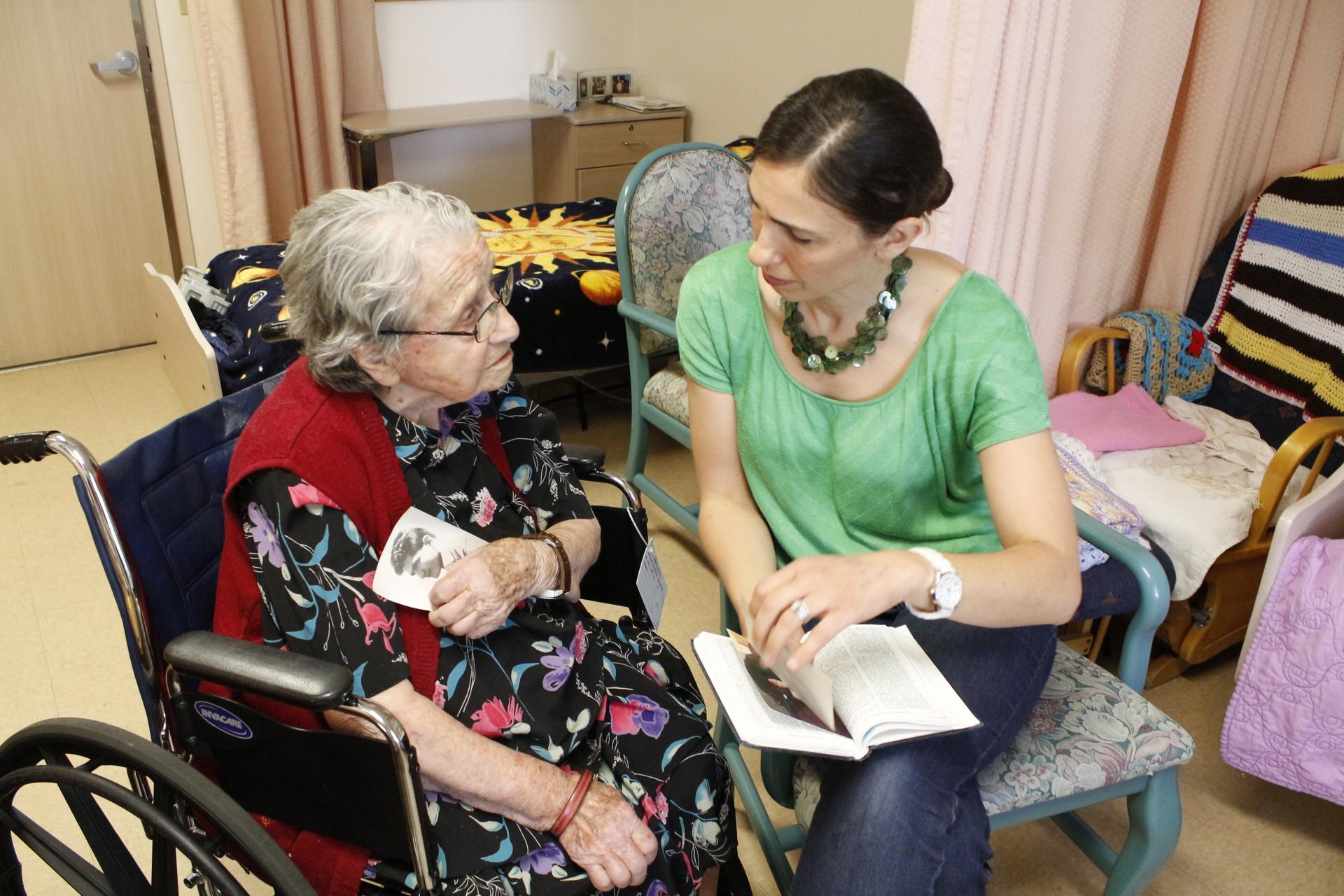101-year-old Armenian genocide survivor tells her story
Yevnige Salibian, 101, is one of the few remaining survivors of the Armenian genocide.
Yevnige Salibian remembers peering through the wooden panels of her family home in Aintab, Turkey, as a young girl and seeing throngs of Armenian women, children and elderly being marched out into the desert to their eventual deaths.
“I saw the Turkish people, long whips in their hands … and the children were crying, ‘Mama, I am hungry. I want some bread. Mama, I am thirsty. Mama, I cannot walk,'” Salibian says, sitting in her wheelchair at the Ararat Nursing Home in Mission Hills, California. “These sounds come in to my mind now. … It doesn’t go.”
At 101, Salibian is among the last remaining survivors of the Armenian Genocide, the Ottoman Empire’s systematic deportation and killing of nearly 1.5 million Armenians during, and shortly after, World War I. This month marks the 100th anniversary of the start of the genocide, when some 250 Armenian intellectuals were arrested in Istanbul by Ottoman authorities and later executed.
For the Armenian community in Los Angeles, the largest in the United States, the centennial commemoration carries with it an uncomfortable, and often maddening, truth: The genocide still lacks uniform international recognition.
“The Armenian Genocide is as alive in L.A., if not more, than anywhere else in the world,” says Alec Mouhibian, an L.A.-based Armenian American filmmaker and co-director of the new feature film 1915. “We don’t think 100 years ago is 100 years ago.”
The Turkish government concedes vast numbers of Armenians were killed between 1915-1923, but they deny there was ever a systematic plan to wipe them out. Here in the US, 43 states have passed resolutions recognizing that what happened to the Armenians, was genocide. Pope Francis recognized it as genocide earlier this month. But the official US government position falls short of calling the event a “genocide,” despite President Barack Obama’s comments in 2006 that the genocide was a “fact supported by an overwhelming body of historical evidence.”
It’s this struggle over semantics that Mouhibian says is an elemental part of the collective Armenian identity.
“For us, it’s not just a chapter in a history book, or a lesson in a classroom,” he says. “It’s something that drives Armenians in L.A. crazy, and it’s something that connects them to their heritage.”
The mania caused by the lack of recognition has made it nearly impossible for the Armenian community to move on from its past, says Stephen Smith, executive director of the USC Shoah Foundation, which houses tens of thousands of witness testimonies from genocide survivors.
“For the Armenian community, it feels like it still has to legitimize its past because it’s being denied,” Smith says. “Its efforts have to go into that, rather than into healing, participation and full integration into the community in which they live.”
This piece originally appeared on KCRW’s Which Way LA blog here.
Every day, reporters and producers at The World are hard at work bringing you human-centered news from across the globe. But we can’t do it without you. We need your support to ensure we can continue this work for another year.
Make a gift today, and you’ll help us unlock a matching gift of $67,000!
